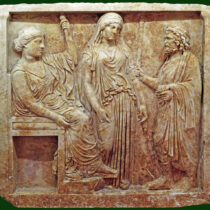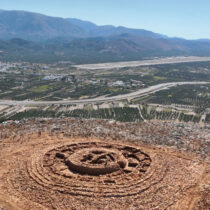One of the most curious aspects of euergetism in the Roman imperial period was the participation of children and women in public life. During the Classic and early Hellenistic years it would have been unthinkable a child to be elected as state official. Nevertheless, the Greek cities, soon after their enforced “unification” by the Macedonian monarchy, started to loose their political autonomy and to face heavy financial strains. Thus, their economic survival became their most pressing problem, since they desperately needed funds in other to maintain their already established way of life, i.e., gymnasia, baths, market-places, temples. Therefore, the elite families, who had so far monopolized the earth and the other sources of wealth, had to foot the bill. Progressively most public offices became liturgies: the office holder had to pay the expenses of his office and thus he was granted the title. As adult males of the aristocracy were not always available for offices, for a number of reasons, their children, with their mother’s help, had to fulfill the civic obligations of the family. The membership to the curial class became hereditary and the curiale’s sons were called patrobouloi. The Greek cities expressed their gratitude to the rich families of their society by granting to their children titles, such as “son” or “daughter” of the city and also by issuing paramythetic decrees upon their premature death. Such was the power of children officials that in the 3rd century A.D. two adolescents. Heliogabalus and Alexander Severus, reigned in Rome under the tutelage of their grandmother from their mother’s side.
A Curious Phenomenon: Children as Officials and Euergetists in the Eastern Part of Roman Empire
14 Aug 2012
by Archaeology Newsroom
- A
- A
- A


